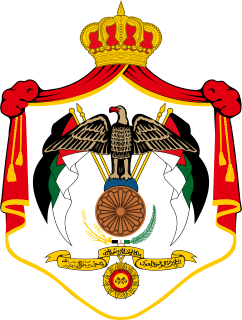| |||||||||||||||||||||
| |||||||||||||||||||||
 |
|---|
Parliamentary elections were held in Rwanda between 16 and 18 September 2013. [1] The result was a victory for the Rwandan Patriotic Front, which maintained its absolute majority in the Chamber of Deputies, winning 41 of the 80 seats.
| |||||||||||||||||||||
| |||||||||||||||||||||
 |
|---|
Parliamentary elections were held in Rwanda between 16 and 18 September 2013. [1] The result was a victory for the Rwandan Patriotic Front, which maintained its absolute majority in the Chamber of Deputies, winning 41 of the 80 seats.
Of the 80 seats in the Chamber of Deputies, 53 were directly elected by closed list proportional representation with an electoral threshold of 5%. A further 27 seats were indirectly elected by local and national councils, including 24 reserved for women, two for representatives of youth and one for representatives of handicapped. [2]
In the weekend preceding the election, on 13 and 14 September, two grenades exploded in a Kigali market. [3] The Rwandan government blamed the Democratic Forces for the Liberation of Rwanda (FDLR), the remnants of the force responsible for the 1994 Genocide. [2] Questions were asked about the credibility of the election as transparent, free and fair. [4]
Voting was otherwise reported as orderly.
| Party or alliance | Votes | % | Seats | +/– | |||
|---|---|---|---|---|---|---|---|
| RPF coalition | Rwandan Patriotic Front | 76.22 | 37 | +1 | |||
| Centrist Democratic Party | 1 | 0 | |||||
| Ideal Democratic Party | 1 | 0 | |||||
| Party for Progress and Concord | 1 | 0 | |||||
| Rwandan Socialist Party | 1 | 0 | |||||
| Social Democratic Party | 13.03 | 7 | 0 | ||||
| Liberal Party | 9.29 | 5 | +1 | ||||
| Social Party Imberakuri | 1.46 | 0 | New | ||||
| Independents | 0 | 0 | |||||
| Indirectly-elected members | 27 | 0 | |||||
| Total | 80 | 0 | |||||
| Total votes | 5,881,874 | – | |||||
| Registered voters/turnout | 5,953,531 | 98.80 | |||||
| Source: IPU, All Africa | |||||||

The politics of Tunisia takes place within the framework of a unitary semi-presidential representative democratic republic, with a President serving as head of state, Prime Minister as head of government, a unicameral legislature and a court system influenced by French civil law. Between 1956 and 2011, Tunisia operated as a de facto one-party state, with politics dominated by the secular Constitutional Democratic Rally (RCD) under former Presidents Habib Bourguiba and then Zine el Abidine Ben Ali. However, in 2011 a national uprising led to the ousting of the President and the dismantling of the RCD, paving the way for a multi-party democracy. October 2014 saw the first democratic parliamentary elections since the 2011 revolution, resulting in a win by the secularist Nidaa Tounes party with 85 seats in the 217-member assembly.

The Riksdag is the legislature and the supreme decision-making body of Sweden. Since 1971, the Riksdag has been a unicameral legislature with 349 members, elected proportionally and serving, since 1994, fixed four-year terms. The 2022 Swedish general election is the most recent held general election.

Elections in Rwanda take place within the framework of a multi-party democracy and a presidential system. The President and majority of members of the Chamber of Deputies are directly elected, whilst the Senate is indirectly elected and partly appointed.

The Council of Representatives, usually referred to simply as the Parliament is the unicameral legislature of the Republic of Iraq. As of 2020, it comprises 329 seats and meets in Baghdad inside the Green Zone.

The Independent Movement of Absolute Renovation is a political party in Colombia, founded on March 21, 2000 by 51,095 Colombians led by lawyer and former senator Carlos Alberto Baena and Alexandra Moreno Piraquive. The party also has functions as a non-profit organization. It has representation in the Chamber of Representatives and in the Senate of the Congress of Colombia, and has also participated in the public corporations of Colombia at a regional level, being stated as the eighth-most influential political force in the country.

The People's Assembly is Syria's legislative authority. It has 250 members elected for a four-year term in 15 multi-seat constituencies. There are two main political fronts; the National Progressive Front and Popular Front for Change and Liberation. The 2012 elections, held on 7 May, resulted in a new parliament that, for the first time in four decades, is based on a multi-party system. In 1938, Fares Al-Khoury became the first Christian to be elected Speaker. In 2016 Hadiya Khalaf Abbas, Ph.D., representing Deir Ezzor since 2003, became the first woman elected to be the Speaker. In 2017, Hammouda Sabbagh became the first Syriac Orthodox Christian to have held the post.

General elections were held in Jordan on 20 November 2007. Following the election, Prime Minister Marouf al-Bakhit and his cabinet resigned, as it normally followed in the Jordanian political system. King Abdullah II appointed Nader al-Dahabi as the new Prime Minister on 22 November to lead a new technocratic government.

Parliamentary elections were held in Rwanda from 15 to 18 September 2008. The elections were boycotted by the opposition, and resulted in a victory for the ruling Rwandan Patriotic Front (FPR), which won 42 of the 53 elected seats. The elections also produced the world's first national parliament with a female majority.

Presidential elections were held in Rwanda on 9 August 2010, the second since the Rwandan Civil War. Incumbent President Paul Kagame of the Rwandan Patriotic Front (RPF) was re-elected for a second seven-year term with 93% of the vote.
Parliamentary elections were held in Afghanistan on 18 September 2010 to elect members of the House of the People. The Afghan Independent Election Commission - established in accordance with the article 156 of the Constitution of Afghanistan for the purpose of organizing and supervising all elections in the country - postponed the poll from its original date of 22 May to September 18.

Parliamentary elections were held in Rwanda between 29 September and 2 October 2003. They were the first parliamentary elections since 1988 and the second multi-party national elections in the country's history. They were held following the approval of a new constitution in a referendum in August 2003.

Parliamentary elections were held in Mali on 24 November 2013. President Ibrahim Boubacar Keïta's party, Rally for Mali, won 66 of the 147 seats in the National Assembly, with its allies winning an additional 49 seats, giving it a substantial majority. The Union for the Republic and Democracy, led by Soumaïla Cissé, won 17 seats, becoming the Opposition.

The 2013 Italian general election was held on 24 and 25 February 2013 to determine the 630 members of the Chamber of Deputies and the 315 elective members of the Senate of the Republic for the 17th Italian Parliament. The centre-left alliance Italy Common Good, led by the Democratic Party (PD), obtained a clear majority of seats in the Chamber of Deputies thanks to a majority bonus that effectively trebled the number of seats assigned to the winning force and narrowly defeated the centre-right alliance of former Prime Minister Silvio Berlusconi in the popular vote. Close behind, the new anti-establishment Five Star Movement of comedian Beppe Grillo became the third force, well ahead of the centrist coalition of outgoing Prime Minister Mario Monti. In the Senate, no political group or party won an outright majority, resulting in a hung parliament.

This national electoral calendar for 2015 lists the national/federal direct elections that were held in 2015 in all sovereign states and their dependent territories. By-elections are excluded, though national referendums are included.
In the Parliament of Australia, the political parties appoint party whips to ensure party discipline, help manage legislative business and carry out a variety of other functions on behalf of the party leadership. Additional functions of the government party whips is to ensure that a sufficient number of government members and senators are present in the chamber to ensure passage of government legislation and measures and to prevent censure motions succeeding, and to ensure presence of a parliamentary quorum. Their roles in the chamber include tally votes during divisions, and arranging pairs which affects the ability of members and senators to leave parliament during sittings, as well as the entitlement to be absent during divisions.

The Assembly of the People's Representatives is Tunisia's legislative branch of government. The unicameral Assembly replaced the Constituent Assembly and was first elected on 26 October 2014. The legislature consists of 217 seats. Before the 2011 revolution, Tunisia's parliament was bicameral and consisted of an upper chamber called the Chamber of Advisors and a lower chamber called the Chamber of Deputies.

Parliamentary elections in the First Czechoslovak Republic were held in 1920, 1925, 1929 and 1935. The Czechoslovak National Assembly consisted of two chambers, the Chamber of Deputies and the Senate, both elected through universal suffrage. During the First Republic, many political parties struggled for political influence and only once did a single party muster a quarter of the national vote. Parties were generally set up along ethnic lines.

Parliamentary elections were held in Rwanda on 3 September 2018, with Rwandan overseas voting the day before. The result was a victory for the Rwandan Patriotic Front coalition, which won 40 of the 53 elected seats while losing its absolute majority over the total of seats, whilst the Democratic Green Party and Social Party Imberakuri both entered parliament for the first time. With 49 of the 80 seats in the newly elected parliament held by women (61%), the elections maintained Rwanda's position as the country with the highest proportion of female MPs.

General elections were held in Jordan on 10 November 2020 to elect the members of the nineteenth House of Representatives. Voter turnout was just 29.88%, the lowest in a decade.
Jeanne d'Arc Uwimanimpaye is a Rwandan politician. She has been a member of the Chamber of Deputies since 2008. From 2013 to 2018, she served as a Deputy Speaker of the Chamber.